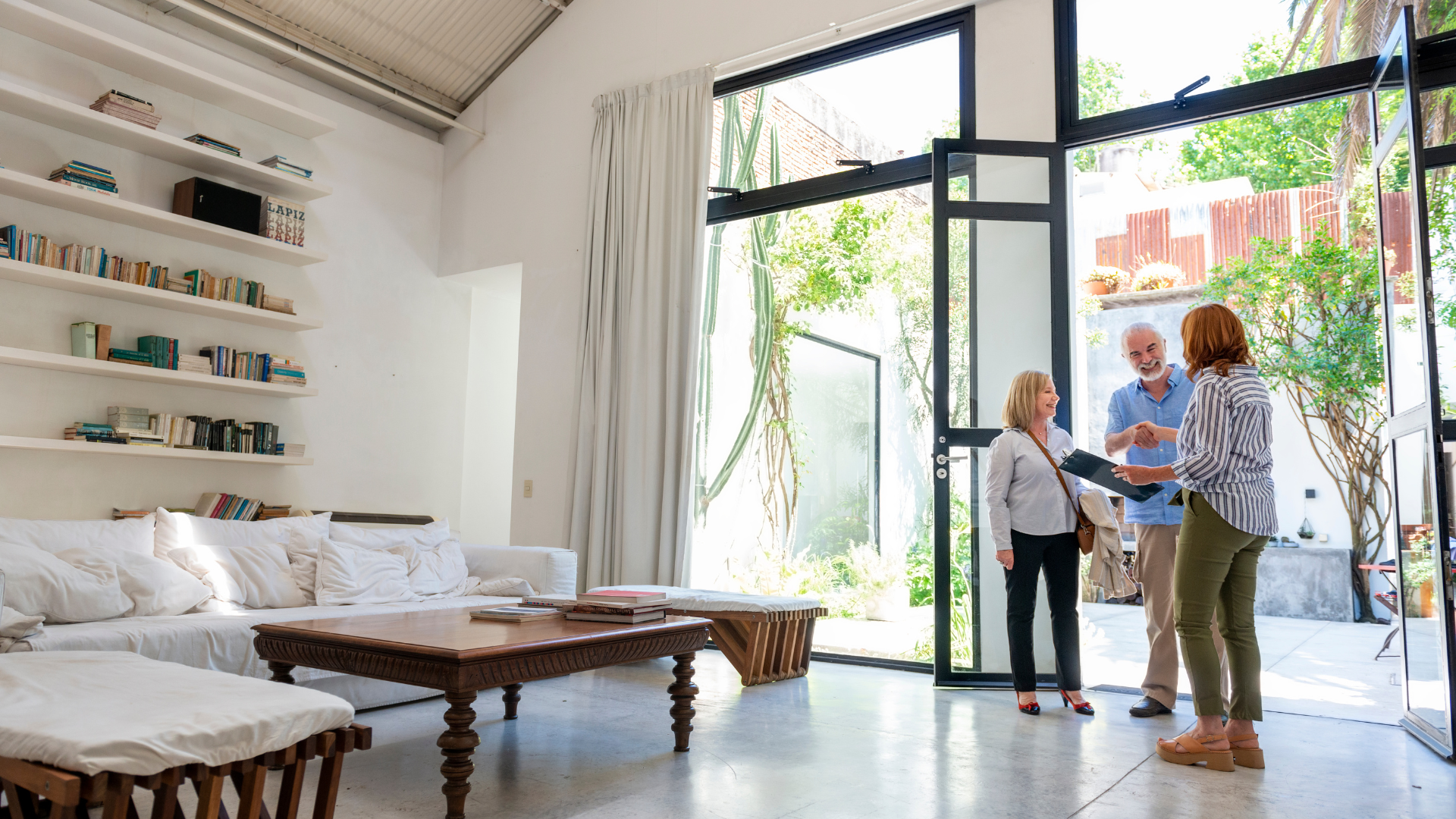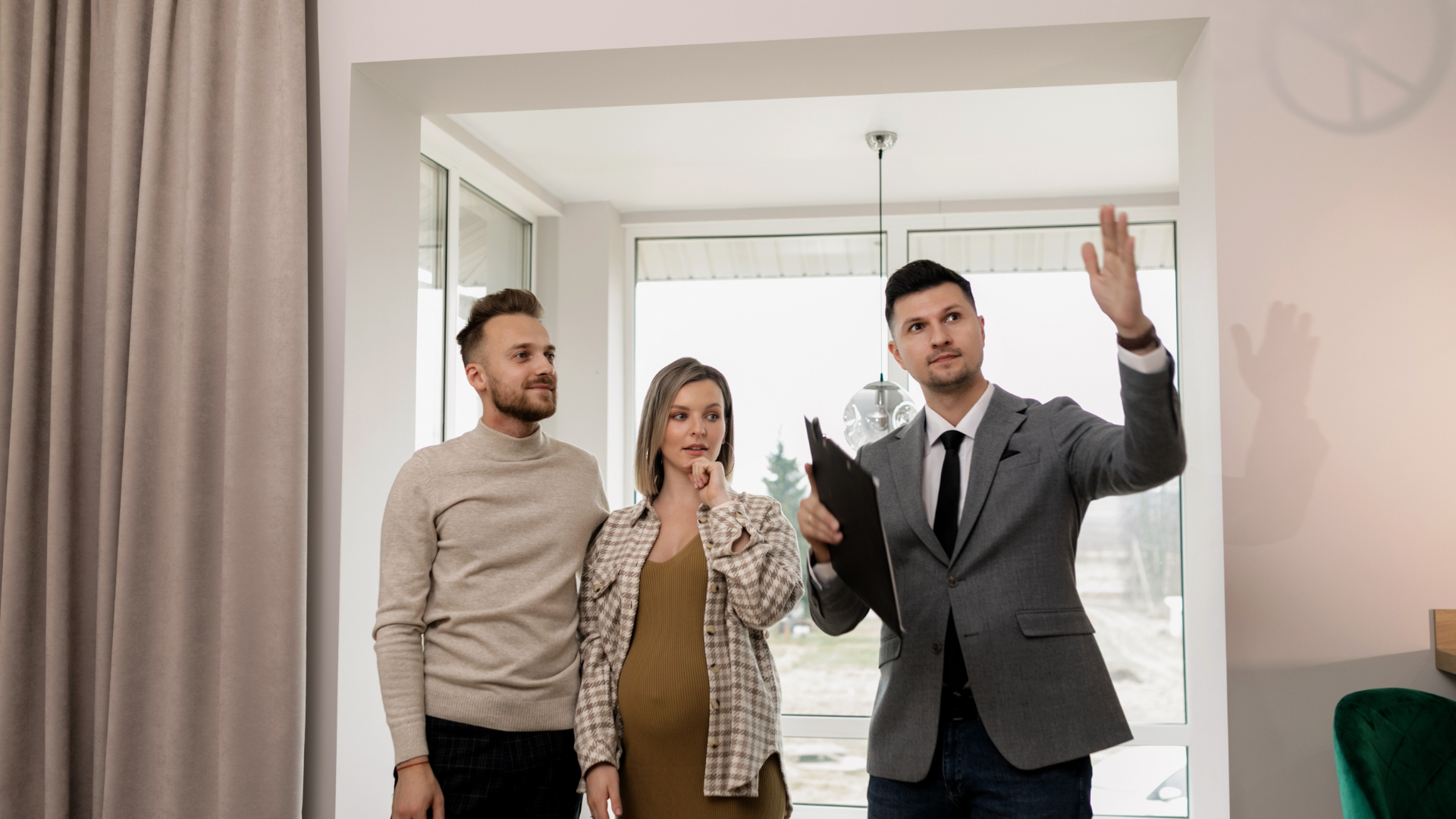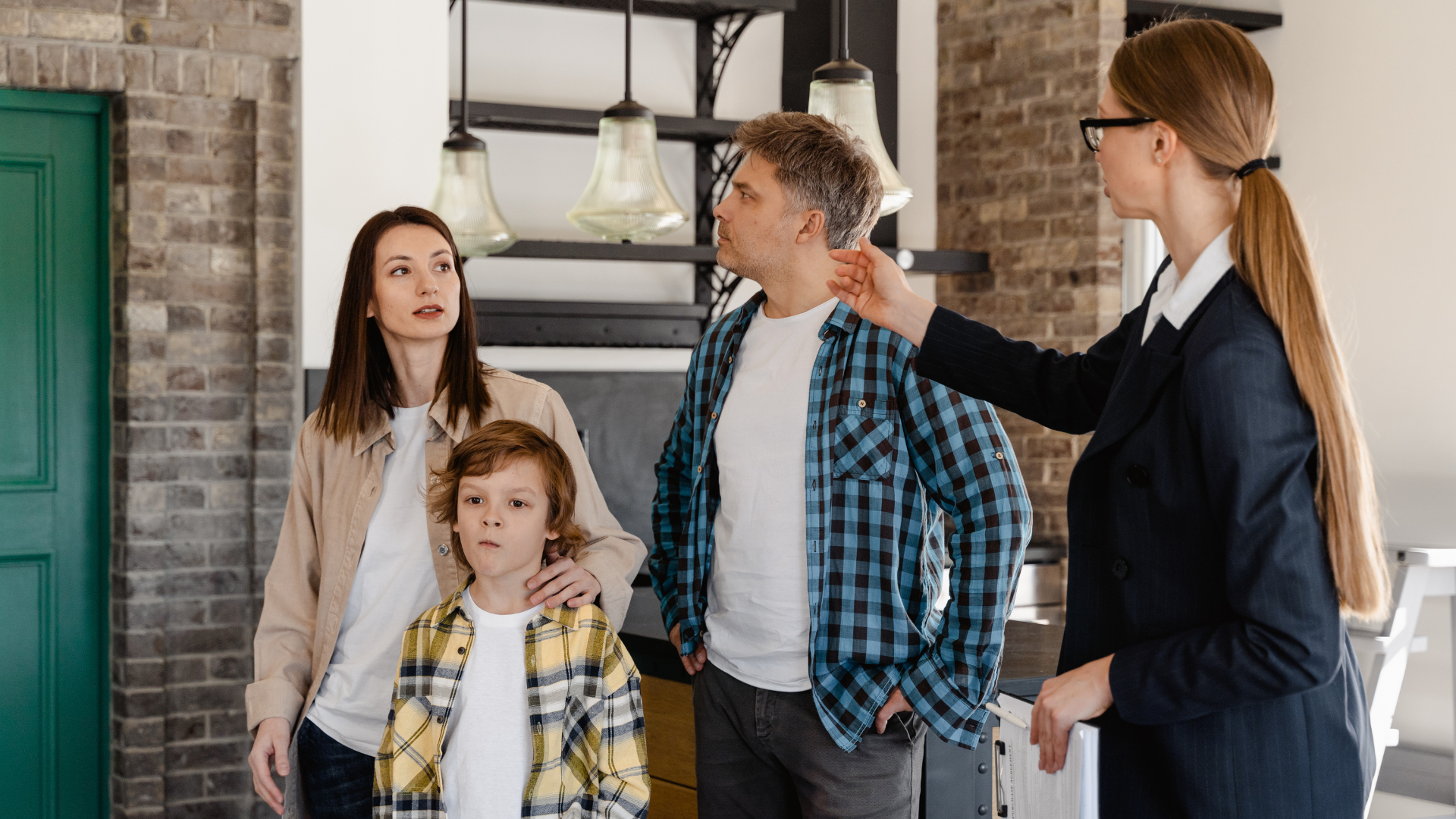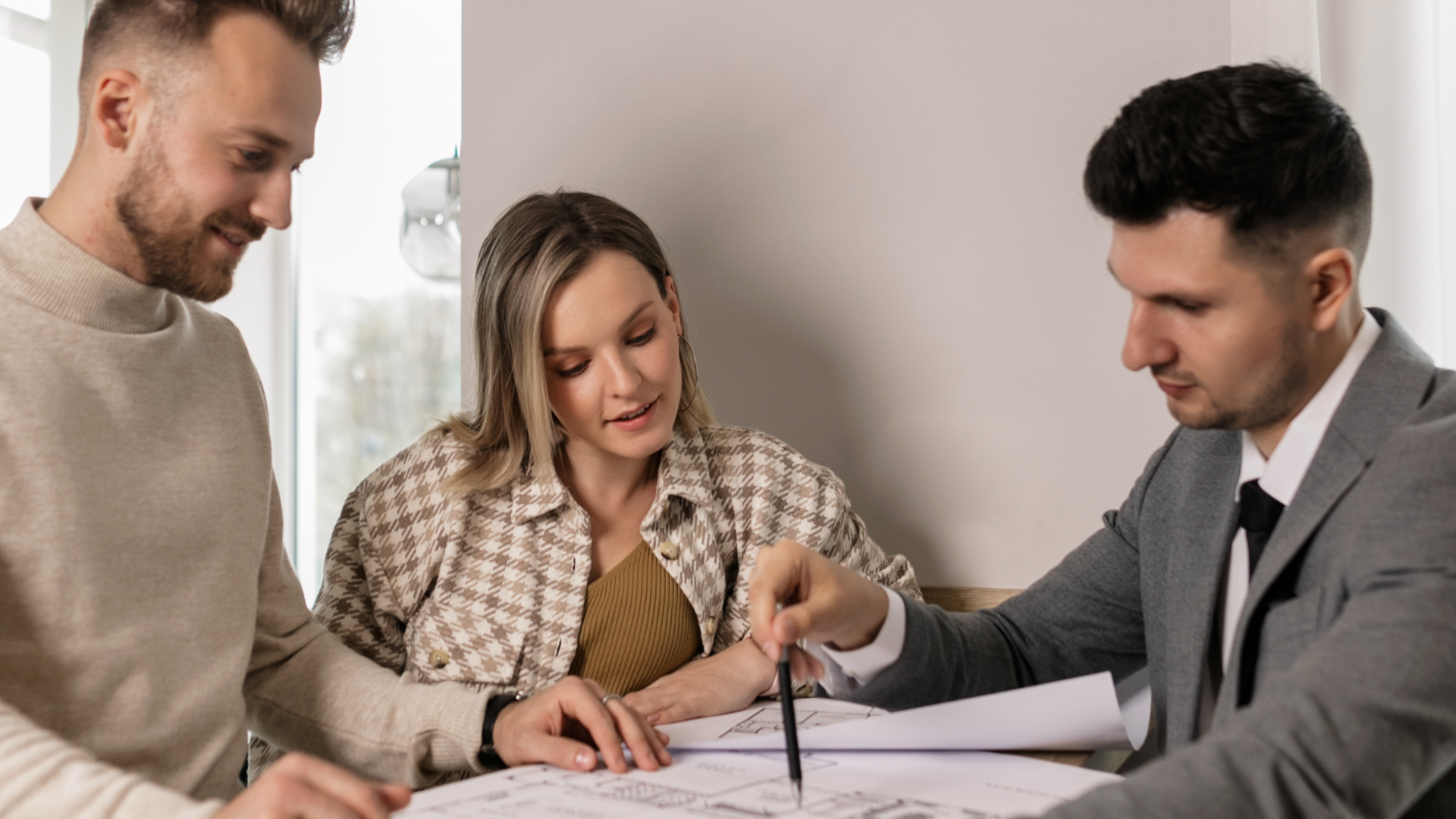No matter how many photos or videos of a property you see online, nothing gives you a better view than seeing it in person. That’s why attending an open house is an essential step in the homebuying process. The problem is you won’t be the only one there. You could be fighting it out with dozens of other house hunters and property investors, all clamouring for a view of the same home, all in a short time. So how can you make the most of your visit? And what should you do to get the information you need to make an informed decision? This article reveals our top tips for Aussie homebuyers and investors when attending an open house.
Want expert and personal advice on home loans so you’re ready to buy? Check out our list of the best mortgage brokers below.

What Is an Open House?
Definition
An open house allows buyers to physically come and look at a property for sale. It’s scheduled at a designated time, usually 15-30 minutes, and allows buyers to walk through a home and see it firsthand.
Sellers can showcase their property to reach a wide audience. This is often a key strategy to attract more buyers, create buzz, and drive up the offers.
How Open Houses Work in Australia
In Australia, open houses are typically hosted by real estate agents and held on weekends, often on Saturdays. The time of day varies, but the most popular times are mid-morning to early afternoon. These times give more people the chance to attend the open house, which maximises the number of buyers in attendance and increases demand for the property.
Real estate agents are responsible for coordinating open houses. They prepare the property, often with the help of a property stager, and provide marketing materials such as brochures outlining the home’s features and benefits. They often host two open houses each week, one on a Saturday and another midweek.
Registration and Entry Process
Real estate agents encourage buyers to register before they attend an open home. You can do this online or by contacting the agent directly. While registration isn’t essential, it allows the agent to contact you if the time changes or to talk to you about the property.
What to Bring and Wear
We recommend taking these essentials so you can gather all the information you need during an open house:
- Comfortable clothes: You’ll be walking, crouching, and possibly climbing stairs to get a close look at the property, so wear comfortable but presentable clothes.
- Notepad or phone: Jot down a few notes of what you like (and what you don’t) to avoid forgetting later.
- Measuring tape: Especially if you’re an owner-occupier, measuring tape is the easiest way to check whether your belongings will fit so you can plan your furniture and appliance layout.
- A second set of eyes: A family or friend offers a fresh perspective, and they may spot details you miss.

Benefits of Attending Open Houses
Is an open house worth the hassle? Here are five advantages of attending:
Get A Feel for the Property
Have you ever been pleasantly surprised when you saw a place in person that you thought looked a bit drab online? Photos and videos only tell you so much. Seeing it firsthand offers better insight into the layout, light, and overall feel.
Understand the Competition
If the open house is packed, there’s a good chance you’ll face a bidding war that drives up the price. If it’s empty, you’ll have the upper hand in negotiations. Either way, it’s good information to know before you put in your offer.
Compare Similar Properties
Attending multiple open houses per year allows you to compare different properties’ features, layouts, and conditions, helping you refine your list of priorities.
No Pressure Environment
Open houses are more relaxed than private inspections, focusing solely on you. You can take more time to look around without feeling pressured by the agent at an open house.
Visualise Improvements
You might see an online listing and feel it is nice but needs a few improvements. Walking through the property in person lets you visualise renovations and know whether they’re realistic.
Challenges and Drawbacks
Open houses are a crucial component of homebuyers’ decision-making process, but they pose a few challenges. These downsides of open houses include:
Time Investment
Open houses can be time-consuming, especially if you have to travel from the other side of the city or interstate. You may need to go to a few open houses before you find the right property, so consider whether it’s worth the time before you commit to too many.
Crowds
Open houses are busy. The extra foot traffic can be distracting, make it challenging to move around, and cover up noise issues you’d otherwise notice.
Limited Time
You might only have 30 minutes for an open house. If you’re inspecting a double-storey, 4-bedroom home, you’ll be hard-pressed for time, so a private inspection may be better.
Lack of One-On-One Attention
If you get there first for a private showing, you will only get the same time as everyone else with the agent. This makes it difficult to ask questions and uncover inside information about the property.
What to Expect During an Open House Visit
When you arrive at an open house inspection, you’ll usually see a realtor or estate sign on the street that says, “open house.” The agent will probably have to attend several open houses that day (if it’s a Saturday, they might not be there if you arrive early). If you’re late, they might be busy showing someone around, but don’t be shy —if you see the sign and the doors open, head on in.
Agent-Guided or Self-Guided Tours
Open houses vary between guided and self-guided formats. Some agents prefer to provide a brief overview of products before letting attendees explore independently. Others prefer to personally show as many people around as possible. The agents might hand you a marketing brochure when you arrive or leave a stack of them on a kitchen bench so you can grab one yourself.
Crowds and Atmosphere
Open houses attract a mix of serious buyers, curious neighbours and visitors, and potential property investors. Depending on the property’s location and condition, you might be the only one there or have a crowd of twenty or more people – especially if it’s an inner suburb in Melbourne, Sydney, or Brisbane.
Midweek open houses are quieter than weekends because people must contend with work and other commitments during the week. Agents and designers usually host open houses for multiple weeks, with the first few the busiest in attendance.

Preparing for an Open House Visit
Do some research ahead of time. Check out photos, floor plans, and details about the property so you know what to look for. We also recommend arriving early so you avoid the crowd. If you need to learn more about the neighbourhood, you can check it out before or after the inspection.
Given you’ll only have 30 minutes to inspect the property, it’s easy to miss critical details or overlook certain aspects of the property that are crucial to your offer. Make a checklist before you go, including what to look for and what to ask. Here are a few items to include:
Open House Checklist
- Natural lighting and ventilation
- Noise levels from neighbouring properties or traffic
- Quality and condition of fixtures, appliances, and fittings
- Water pressure and plumbing
- Heating and cooling systems
- Storage space
- Outdoor areas
- Paint condition
- Lights (whether they work correctly)
- Signs of structural issues (cracks, slopes, mould, rotting, or water damage)
Open House Questions to Ask The Agent
- Why are the sellers selling?
- Are there any known structural or maintenance issues?
- How long has the property been on the market?
- Have there been any recent upgrades or renovations?
- Is there flexibility in price or terms?
- Are there any offers so far?

Six Dos and Don’ts of OpenDon’ts Etiquette
An open house allows you to walk through the property without knocking on the door, but you still need to be respectful. Here is a list of open house etiquette dos and don’ts.
Do Respect the Property
Treat each home you visit as if it were your own. Wipe your feet at the door (or take your shoes off if asked), seek permission before taking photos or videos, and remember this is someone’s home.
If the house isn’t for you, that’s okay. Be careful about loudly voicing your opinions. Wait until you’re outside to discuss the negative aspects of the property.
Do Ask Questions
Ask questions, but keep them polite and professional instead of being nosy. It’s okay if anyone else has made an offer, but respect that the agent can’t give you details.
Don’t Make Yourself at Home
You haven’t moved in yet. Don’t sit on the furniture, open chests of drawers, or do anything that might invade the privacy of the current homeowners’ room.
Do Take Your Time
This might be the only chance to inspect the building up close (although we recommend a second inspection if possible). Buying any property is a huge financial investment, so don’t rush it.
Donit’sring YoDon’ttourage
A second set of eyes is great. A third, fourth and fifth? Not a smart idea. A large group of friends or family will overwhelm the space, making it harder for you and other buyers to look around.
Post-Visit Tips
Once you’ve checked the property, you should make a post-visit plan for what to do next. Deals happen quickly in Australian real estate, so you don’t want to miss taking advantage of your dream home or investment property by sitting on your hands. Here’s an outlHere’s what you should do after an open house:
- Check out the neighbourhood: If you haven’t already, drive around the surrounding area to see what local amenities are nearby and get a feel for the neighbourhood. Doing it on the same day saves you a separate trip.
- Review your notes and photos: Scroll through your photos and videos while the viewing is still fresh in your mind. It’ll be easier to remember key aspects of the property on the same day and compare them against other options.
- Discuss with your agent or family: Now’s the time to talk about what you liked and didn’t like so they know you’re serious about buying the property. If you’re using an agent, get their expert opinion.
- Ask additional questions: Follow up with the real estate agent with any questions you didn’t get to ask. It shows your intentions and keeps you front of mind when the offer time comes around.
- Consider a second visit: If you didn’t like what you saw, you can skip this one. But if you’re interested, you can schedule a private viewing to take a closer look and have some one-on-one time with the agent.
- Discuss next steps: After a second viewing, you can discuss offers and the next steps. These include mortgage pre-approval, followed by making an offer and, hopefully, the exciting settlement process.

Alternatives to Traditional Open Houses
We recommend attending an open house and having a few other options.
Private Showings
A private showing gives you an exclusive, one-on-one viewing. You’ll walk through the property without the crowd making noise, ideal if you want a quieter, more personalised look. In a perfect world, pair a private inspection with an open house rather than picking one or the other.
Virtual Tours
A virtual tour lets you view videos of a property online, which is usually filmed by the selling agent. These became extremely popular during the COVID-19 pandemic, but in recent years, Australians have switched back to more traditional open house inspections.
Video Walkthroughs
If you can’t attend the property yourself, you may have a buyer’s agent, one you trust, attend on your behalf and give you a video walkthrough. This option is great for interstate or overseas investors looking to buy a property without the travel expenses.
Conclusion
Attending open houses is a valuable step in the property-buying journey, whether you’re a first-time homebuyer or a seasoned investor. Walking through a property in person gives you a better feel for the place and reveals information you can’t see online. You should respectfully approach each open house, but remember, you’re there with a purpose. Prepare a checklist, take what you need, and maximise your time, including a second inspection for a closer look at the property. If you follow these steps, you’ll get all the information you need to make a smart decision and put in a winning offer.
Check the best mortgage brokers in your area.
FAQs on Open Homes
What is an open house, and how does it work?
An open house is where a property for sale is open for buyers and the general public to look at. It’s scheduled at a specific time and organised by a real estate agent who oversees the visit and answers questions.
Do I have to register for an open house?
No, usually, you won’t have to wonder. Walk-ins are welcome at most weekend open houses. However, if you do register, you’ll be kept in the loop about time changes and anything else important to the property.
How long do open houses last in Australia?
Open houses are typically held between 8am and 6pm for around 30 minutes.
What should I expect when attending an open house?
Open houses are usually held in a casual, welcoming environment where you’re free to roam the property’s outdoor areas. Depending on the property, there may only be a few people, or you may see a large mix of buyers, neighbours, and investors.
What should I bring to an open house visit?
Bring essentials to make the most of your visit: a notepad or your phone for taking notes and photos, a measuring tape for checking room dimensions, and a checklist to ensure you cover important aspects like lighting, noise, and storage.
Is there a specific etiquette I should follow while attending an open house?
Yes, open house etiquette is important to ensure a respectful experience for all attendees and the hosting agent. Refrain from touching personal belongings, avoid entering marked off-limits areas, and keep any critical opinions to yourself until you leave.
What happens if I arrive late to an open house?
You can still go in as long as the open house hasn’t ended. However, if it hasn’t, keep in mind that you may not get as much time to inspect the property or speak with the agent if you’re late.
Considering an offer directly after the open house?
Yes, you can. If you’re confident about the property and have your finances in order, making an offer quickly can give you an edge, especially if there’s a strong desire to sell. However, if you need to be more sure, arranging a second viewing and conducting checks like a building inspection is better.
What if you can’t attend the open house?
If a traditional community open house doesn’t work for you, you can arrange a private showing or virtual tour or have someone else attend your place and give you a video walkthrough.

MANSOUR SOLTANI
Mansour has spent more than two decades involved in the purchase and sale of real estate, acquiring both investment and commercial properties throughout Australia, including in major cities and smaller regional locations.
He is the proprietor of a finance brokerage firm, overseeing a portfolio worth in excess of 75 million in loans and serving a diverse clientele across Australia and a regular contributor to money.com.au. This has equipped him with extensive knowledge in various investment tactics, allowing him to offer significant insight.
